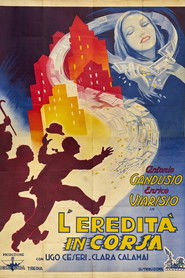detail profile emilio cigoli
Peran Yang Di Mainkan Emilio Cigoli
 A reedited Italianlanguage dubbed version of...
A reedited Italianlanguage dubbed version of...Godzilla 1977
A re-edited Italian-language dubbed version of the original Godzilla, using as a basis the U.S. version, "Godzilla, King of the Monsters!" (1956), plus WWII newsreel footage and clips from other science fiction films. The re-edited film was then colorized via a process called "Spectrorama 70" consisting of applying various colored gels to the black and white footage. The film's opening and ending also features new music composed by musicians Fabio Frizzi, Franco Bixio, and Vince Tempera (under the pseudonym Magnetic System).
 A former priest has become bored...
A former priest has become bored...The Furrow of the Peach 1976
A former priest has become bored to the point of impotence by the easy availability of beautiful women. He misses the shame of the priesthood which made sex more enjoyable, and this leads to his strange fascination with photographing asses. He gets involved with a sexy married woman, but he is more interested in her virginal maid.
 Documentary compiled from archives and accompanied...
Documentary compiled from archives and accompanied...To Arms, We Are Fascists! 1962
Documentary compiled from archives and accompanied by a poet's commentary, shows the sweep of modern Italian history from 1911 to 1961, centering on the conditions leading to Fascism and the post-WWII reaction to the Fascist experience.
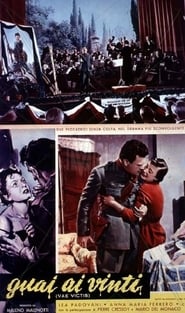 A young woman her sisterinlaw and...
A young woman her sisterinlaw and...Guai ai vinti 1954
A young woman, her sister-in-law and her ten year old daughter are violently traumatised by invading Austrian soldiers. Later, in Verona, both woman discover they are pregnant. After a suicide attempt, one has an abortion the other keeps her child - and both faces struggles with friends and family as they return to their homes.
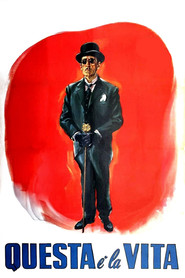 A film made up of four...
A film made up of four...Of Life and Love 1954
A film made up of four episodes: a jar repairer gets trapped in a vat because of his hunch; a young unmarried mother is forced to beg to buy herself a fan; Rosario Chiarchiaro appears before a law court for casting spells; the discomfort of an overtight jacket gives a wedding witness the strength to persuade the bridegroom's reluctant parents to bless his union.
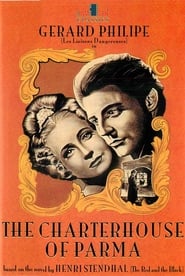 This adaptation of Stendhals timeless masterpiece...
This adaptation of Stendhals timeless masterpiece...The Charterhouse of Parma 1948
This adaptation of Stendhal's timeless masterpiece of French literature tells the tale of Fabrice Del Dongo (Grard Philipe) a young archibishop who gives his heart and soul to romance rather than to the Church creating upheaval in the lives of evergone around him the Countess of Sanseverine (Maria Casares) is but one of the may women who love him. In turn she incurs jealous retributions from those in high places who desire her. For his crimes Fabrice is thrown in Prison where from Crimes Fabrice is thrown in prison where form his lonely window he falls in love with his jailer s daughter and plans a daring escape she however calls his plan insane and takes a vow to the Virgin Mary to never see him again ever if his escape succeeds the Charterhouse of Parma explodes with conflicting desires man s desire form God vs. his desire for romance.
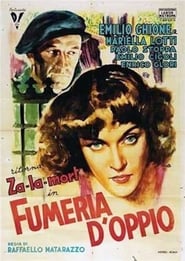 A young woman is murdered and...
A young woman is murdered and...Fumeria d’oppio 1947
A young woman is murdered and robbed in broad daylight. A young man is arrested, in possession of some of the jewels of the victim. The passionate protests of his sister arouse the compassion of Za la Mort, who promises to help the girl.
 In his first collaboration with renowned...
In his first collaboration with renowned...The Children Are Watching Us 1943
In his first collaboration with renowned screenwriter and longtime partner Cesare Zavattini, Vittorio De Sica examines the cataclysmic consequences of adult folly on an innocent child. Heralding the pair’s subsequent work on some of the masterpieces of Italian neorealism, The Children Are Watching Us is a vivid, deeply humane portrait of a family’s disintegration.
 1017 AD The Republic of Pisa is...
1017 AD The Republic of Pisa is...The Gorgon 1942
1017 AD. The Republic of Pisa is organizing a fleet to drive out the Saracens who are infesting the Mediterranean. While the forces are away "The Gorgon," the young daughter of a Pisan nobleman who has been heroically killed, comes to be solemnly invested as the figurehead virgin who will maintain a lantern to celebrate the men's victorious return. In charge of the home guard is an ambitious young Florentine who feels deprived of the forthcoming honour and glory, and who seeks revenge by violating the sacred person of the virgin. He gains access to her well guarded quarters, but when the Gorgon falls helplessly in love with him, his desire for vengeance falls away. His plot exposed, he commits suicide rather than invoke the wrath of the Pisans. The Gorgon too takes her life by throwing herself from a high tower. Meanwhile, the victorious Pisan vessels return.

 During the American Civil War a...
During the American Civil War a... The nun tells the priest about...
The nun tells the priest about...
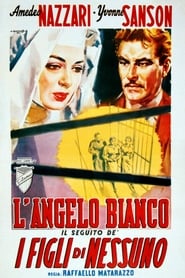 In this sequel to Nobodys Children...
In this sequel to Nobodys Children...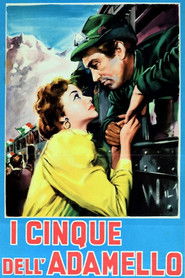 The odyssey of 5 Alpine soldiers who...
The odyssey of 5 Alpine soldiers who...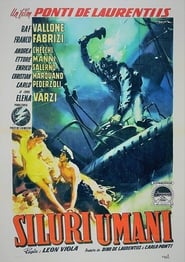 A team of highly trained Italian...
A team of highly trained Italian... Carlo Savelli gone missing after the...
Carlo Savelli gone missing after the... The life and loves of great...
The life and loves of great...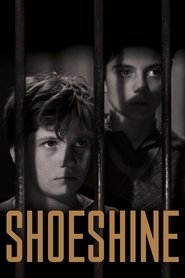 At a track near Rome shoeshine...
At a track near Rome shoeshine... After having been captured in a...
After having been captured in a...